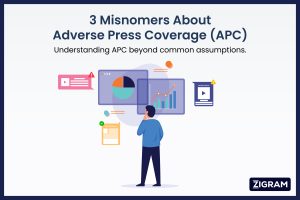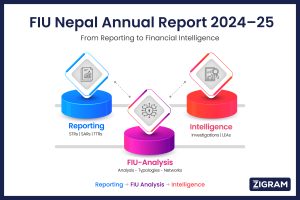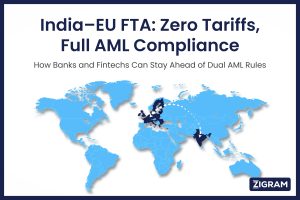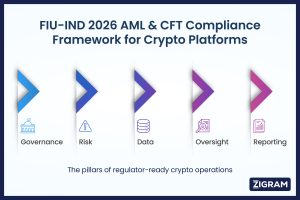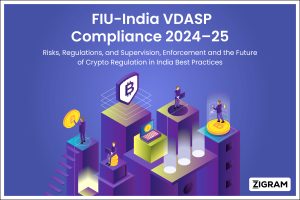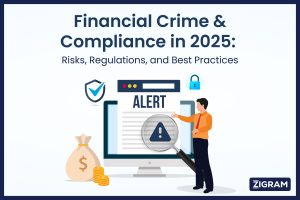Beneficial ownership (BO) registers identify the natural persons who ultimately own or control companies. They are a critical tool against money laundering and corruption. The UK established a public “People with Significant Control” (PSC) register for UK companies in 2016. It has since pushed its Crown Dependencies (CDs: Jersey, Guernsey, Isle of Man) and Overseas Territories (OTs: e.g. BVI, Cayman, Bermuda, etc.) to adopt similar transparency measures. Under the UK’s Sanctions and Anti-Money Laundering Act (2018), all OTs were to introduce public BO registers by 2023; most have not done so.
This report reviews each jurisdiction’s current BO regime (registers, access rules, enforcement) and planned reforms, highlights challenges and loopholes, and compares these regimes to UK standards. We also summarize steps taken (legislative changes, inter-agency cooperation) and analyze pressures for further reform (from the UK Government, FATF standards and EU law).
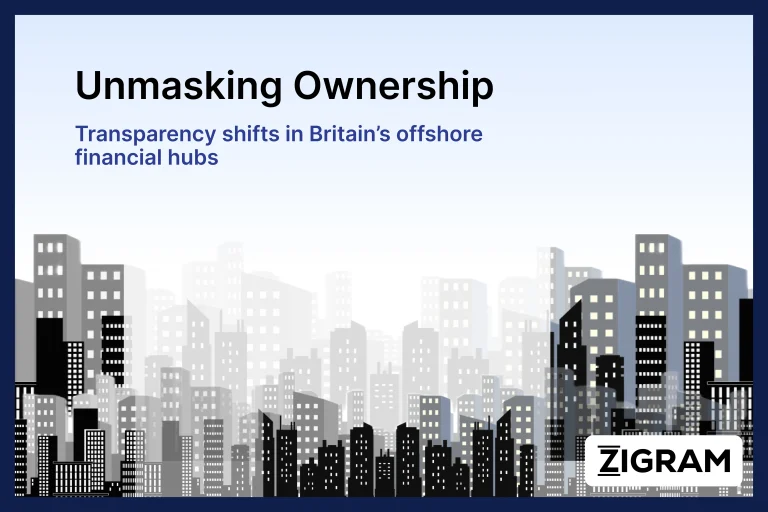
Crown Dependencies (Jersey, Guernsey, Isle of Man)
Each Crown Dependency has a central BO register of companies, maintained by its Financial Services Commission or equivalent. These registers are private: only law enforcement, tax authorities, and regulated professionals (e.g. banks doing customer due diligence) currently have access. In December 2023, the Crown Dependencies issued a joint commitment to extend access, but not open the registers fully to the public. Under this commitment, “obliged entities” (financial institutions and other businesses required to do AML checks) will be given direct access by end-2024, and “legitimate interest” access (e.g. journalists, NGOs, academics) will be enabled thereafter, subject to legislative approval.
This follows decisions by the EU’s Court of Justice (WM & Sovim, 2022) and the European Court of Human Rights, which held that unrestricted public access violates privacy rights. In practice, Jersey, Guernsey and the Isle of Man each collect and verify BO information on their companies, but keep it closed. For example, Jersey’s law requires companies to record owners holding ≥25% (or control) and provide it on request, but the public cannot search the register. Moving forward, the CDs plan to give banks and AML officers access by 2024 and to define “legitimate interest” access by 2025.
Example: The States of Jersey, Guernsey and Isle of Man jointly stated that their BO registers already meet international standards, and they will next open them to obliged entities and, after legislative approval, to journalists and NGOs who demonstrate a legitimate interest. All three stress they have a “good-neighbour” policy of cooperating with UK/EU on taxation and crime, but will not allow unfettered public searches.
Overseas Territories
Major Financial Centre Territories:
Bermuda:
Bermuda requires all companies and partnerships to collect BO information, maintained currently by the Bermuda Monetary Authority (BMA). A new unified regime is under development. The government announced a 2024 consultation on a Central Register of Beneficial Ownership. Under this plan, Bermuda will consolidate BO records under the Registrar of Companies, with strict privacy safeguards. Bermuda is adopting a phased access model: banks and other regulated firms will get direct access in 2025, and persons with a “legitimate interest” (e.g. journalists, NGOs) will gain access in 2026.
New laws will require companies to verify owners and impose heavy fines (up to BD$250,000) for non-compliance, plus criminal penalties for unauthorized disclosure. Bermuda’s 2020 pledge (to propose public access by January 2023) was shelved after the EU court ruling. Government statements emphasize privacy rights and await a global standard before fully public disclosure. In short, Bermuda’s BO information is robust and centralized, and compliance is strict, but remains non-public, with the focus on controlled (legitimate interest) access.
British Virgin Islands (BVI):
The BVI has one of the largest company registers (dozens of companies per resident). It imposes strict BO obligations on “business companies” and limited partnerships: firms must collect detailed owner data and keep a BO register, and starting Jan 2025 this information must be filed with the Registrar of Corporate Affairs (the new VIRRGIN system). Before 2025, BO data was held by registered agents under the 2020 Beneficial Ownership Secure Search System (BOSS) Act. The BO register is not public; access is limited to law enforcement and regulators via the Exchange of Notes (EON) information-sharing with the UK. In practice, however, proposals for “legitimate interest” access have been highly controversial.
In late 2024 the BVI agreed (at a JMC) to enable legitimate-interest access by mid-2025, but as of mid-2025 no enabling regulations were in place. Civil society criticizes the BVI’s draft rules as too restrictive: e.g., requests would only succeed in court and require knowing the owner’s name in advance, and the registrar would alert companies when their BO data is queried. These “tip-off” and privacy features were condemned in UK parliament as shielding corrupt actors. Key issues in the BVI include the massive scale of entities, reliance on nominee directors/trusts (often only trustees are recorded), and a pending transition to government-held register. Under UK pressure, the BVI has committed to improve access but not yet to go fully public.
Cayman Islands:
Cayman recently overhauled its BO regime. The Beneficial Ownership (Amendment) Act 2023 (effective July 2024) vastly expands coverage (companies, LLCs, LLPs, foundation companies, limited partnerships). Every relevant entity must keep a BO register at its registered office, and copy data to the Competent Authority (a central database). However, this information remains not public – only law enforcement and financial regulators can access it. Cayman allows alternative compliance for regulated funds (which can rely on their existing filings). Following the UK’s 2024 JMC commitments, the Cayman legislature agreed that by April 2025 it would pass legitimate-interest legislation, implemented by June 2025, to let vetted users (journalists, NGOs, etc.) request BO data.
Notably, Cayman’s new law requires companies to keep BO data up-to-date (36 hours to notify of changes) and to verify ownership using independent sources, but like others still exempts some structures (e.g. trusts governed by funds law) from the requirement. Observers praise Cayman’s legal reform for aligning with FATF standards, but note its register is still effectively closed to the public.
Gibraltar:
As a former EU territory, Gibraltar already has a publicly accessible UBO Register. Under the 2017 Register of Ultimate Beneficial Owners Regulations, Gibraltar created a UBO register (including “nominators and appointors”). Entities in Gibraltar must file BO information, and the register is available online (though one must register to search it). In practice, however, even Gibraltar’s register has been subject to legal debate: after the EU court ruling, the government indicated it would review the requirement for full public access. For now, Gibraltar’s regime (once fully implemented) is the only UK jurisdiction with a genuinely public BO database. Gibraltar’s Chief Minister has, however, criticized UK attempts to force other OTs to adopt similar public registers, citing constitutional concerns.
Turks and Caicos Islands (TCI):
TCI has long required firms to maintain BO information, held in a private registry. In late 2024 TCI passed an enabling law for legitimate-interest access. The Financial Services Commission held a consultation in April 2025 on draft regulations: these would let applicants with a verified reason request BO data, but likely on a case-by-case basis requiring knowledge of specific companies (mirroring Cayman’s model). The proposals have not been finalized. Like others, TCI’s BO regime is non-public and there are concerns over trust structures being opaque. The UK-OT Agreement commits TCI to introduce a register (at least for authorities) and its 2024 pledge was to have legitimate-interest access by June 2025.
Other Territories (Anguilla, Montserrat, Falklands, St Helena & Dependencies)
- Anguilla: Anguilla’s Companies Act requires disclosure of BO to the Financial Services Commission, but the data is kept confidential. There is no public register. In 2022 Anguilla updated its companies law to enable legitimate-interest access in principle, but as of 2025 no regulations have been adopted. Anguilla is noted to be working with the FCDO and international partners to upgrade its register infrastructure (including a new registry system) to allow public querying. At the Nov 2024 JMC, Anguilla agreed to implement a legitimate-interest register by June 2025. Key challenges include its small administration and the problematic “tip-off” provision (like the BVI) in draft rules, which would notify companies when their BO data is requested and reveal the requester’s identity.
- Montserrat: Montserrat has long maintained a central “Persons with Significant Control” (PSC) register under its AML regime. By law, companies must file BO information with the Financial Services Commission and Company Registry, updating it within 14 days of any change. Law enforcement and the FSC have direct access to this data. Montserrat’s system meets FATF requirements and has been described as relatively robust for a small jurisdiction. It does not provide public access. At the 2024 JMC, Montserrat committed to move to a fully public register by 2025 (alongside Gibraltar). This would mark a major shift, but no public details of how or when this will happen have been released. As a micro-territory, enforcement and resources remain a concern, but Montserrat has historically aligned BO disclosure with global standards.
- Falkland Islands: The Falklands historically had few business entities, but it too has BO obligations (via UK laws applied locally). In November 2024 the Falkland Islands government pledged to implement a fully public BO register by April 2025, joining Montserrat and Gibraltar in this commitment. This would mark the first open-access register in a BOT (besides Gibraltar). How this will be achieved (legislatively or via UK order) remains unclear. Until now, Falklands’ BO data is private and shared with UK authorities only on request. Key issues include setting up the technical system and balancing privacy with transparency under Falklands’ own constitution.
- St Helena, Ascension and Tristan da Cunha: This grouping has a unified administration. St Helena’s Companies Ordinance requires BO disclosure to the Financial Services Directorate, but information is not public. At the 2024 JMC, St Helena (including Ascension and Tristan) committed to establish a fully public register by April 2025. Implementation plans have not yet been detailed. The main challenge will be creating a registry system suitable for its remote islands; the UK has noted ongoing discussions with FCDO support.
- Other BOTs: The British Indian Ocean Territory (BIOT) has no permanent population (just a military base) and no corporate registry, so BO transparency is moot. The Pitcairn Islands (≈50 people) have effectively no offshore finance; it maintains a Companies Office (for local businesses) but no known BO register. These territories are generally not a focus of BO reforms.
Key Issues and Challenges
Even as many jurisdictions have BO regimes on paper, significant challenges remain:
- Loopholes and exemptions: Several territories allow alternative compliance or exemptions that dilute transparency. For example, Cayman exempts regulated funds and listed companies via “Alternative Routes”, while others (Bermuda, Cayman, TCI) permit a company controlled by a trust to disclose only the trustee’s name, keeping beneficiaries hidden. Smaller jurisdictions with less stringent regulation of law firms or trust service providers (DNFBPs) risk inconsistent enforcement.
- Privacy vs. transparency: Since the 2022 WM & Sovim CJEU ruling, many BOTs/CDs cite privacy and data protection as reasons to reject fully open registers. Proposed designs (in BVI, Anguilla) include notifying companies whose data is requested and giving them the requestor’s identity – measures that deter whistleblowers and investigators. Such “tip-off” rules have been strongly criticized by UK MPs and NGOs as protecting criminals. The UK government maintains that its own public PSC register is compatible with human rights, but many territories remain cautious, especially given EU states are reversing to “legitimate interest” models.
- Enforcement difficulties: Even private BO systems require enforcement. Some territories have struggled with resource constraints: e.g. large registers (BVI) or sprawling international businesses (Cayman) must rely on agents or banks to collect data. In practice, compliance can be uneven. Before 2025, for instance, any failure to file BO data might have gone unpenalized. New laws in several jurisdictions increase penalties (Bermuda up to BD$250K fines, Cayman with significant fines), but effective enforcement will require training and oversight.
- Delays in implementation: Numerous BOTs missed self-imposed deadlines. A Transparency International UK review found that by May 2025 only Cayman had enacted legislation to allow legitimate-interest access; Bermuda, BVI, Anguilla and TCI all missed their April 2025 targets. Ongoing parliamentary debates and JMC statements show continual extensions: the UK agreed not to force OTs until end-2023, then set new goals (June 2025) via bilateral talks. Each push-back raises questions about political will.
- Reputation and enforcement: Many of these jurisdictions are major financial centers heavily dependent on offshore finance. For example, over 90% of companies involved in corruption cases from developing countries were found to be registered in the BVI. This creates internal resistance to transparency. UK parliamentary debates and NGOs have labeled some territorial proposals as “shameful” attempts to avoid scrutiny. Ensuring that BO information is both accurate and timely is a constant challenge: one UK review noted concerns that beneficiaries could be concealed via trusts or nominee structures even under new laws.
Comparison with UK Standards
The UK’s approach remains stricter and more transparent than in its territories. The UK’s PSC register (under the Companies Act 2006) is public and covers all UK companies. UK companies must report “persons with significant control” (≥25% ownership or equivalent) and failure to do so can trigger criminal penalties. The UK also introduced a public Register of Overseas Entities owning UK property in 2022, extending transparency to foreign owners. The UK government emphasizes that its systems fully respect data protection law.
By contrast, nearly all Crown Dependencies and Overseas Territories still maintain non-public BO registers. For example, UK officials note that Jersey, Guernsey and Isle of Man only provide BO data to UK law enforcement on request, whereas UK law enforcement has real-time access to UK registers. In December 2022, the CDs delayed their commitment to any public register, choosing instead the CD-wide plan for restricted (legitimate-interest) access. The Overseas Territories, meanwhile, similarly rolled back from public registers after 2022, now aiming only for limited-access registers. Parliamentarians have pointed out that UK law (e.g. the Economic Crime Act 2022) continues to push for global best practice: the UK expects even its territories ultimately to adopt registers “fully accessible to the public”.
In practice, UK standards set a high bar. As one analysis notes, the UK was “first to develop its own laws unilaterally” for a public register, and the government has reaffirmed that the PSC regime is compliant with human rights. By comparison, OTs and CDs cite court rulings to justify slower progress. However, the UK also leads international bodies (OECD, FATF, G20) in demanding BO disclosure, which it encourages others to meet.
Reform Efforts and International Pressure
Despite shortcomings, many territories and dependencies are taking steps to improve transparency:
- Legislative action: Several jurisdictions have enacted new BO laws or amendments. Cayman (July 2024), BVI (2020, with updates by 2024), Montserrat (PSC rules), and others now have comprehensive BO statutes. Bermuda consolidated BO obligations under a new Act (enforcement from 2025). Anguilla updated its Companies Act in 2022 to facilitate legitimate-interest access. Turks & Caicos passed an enabling law in late 2024 for such access. These laws generally align with FATF’s 2012/2019 standards, ensuring competent authorities can obtain accurate BO data.
- Information-sharing mechanisms: Many OTs operate an “exchange of notes” (EON) arrangement with the UK. Since 2017, the CDs and six major OTs (Anguilla, Bermuda, BVI, Cayman, Gibraltar, TCI) have agreed to share BO information with UK law enforcement on request. A 2019 Home Office review found this highly useful and nearly comprehensive (87% of entities covered). The UK also receives real-time BO information from OTs as part of this scheme.
- Technical support: The UK Foreign Office (FCDO) is assisting territories in building registers. For instance, FCDO is working with Open Ownership to support each BOT individually and funded a new company registry system for Anguilla to enable public access. The May 2023 Joint Ministerial Council (JMC) announced a technical working group to share expertise on implementing public registers with privacy safeguards.
- Consultations and commitments: Several territories have consulted stakeholders on BO access. Bermuda’s late-2024 consultation (closing Jan 2025) on a unified central register is a case in point. In February 2025, the JMC reported that five OTs had committed to pass enabling legislation by April 2025 for greater BO access. Meanwhile, the Crown Dependencies jointly presented draft plans (to parliaments by late 2024) on defining “legitimate interest” access.
- International commitments: UK politicians and NGOs have repeatedly urged progress. For example, at the 2024 JMC and in parliamentary Q&As, the UK Foreign Office stated that all OTs agreed their registers would offer “maximum possible degree of access” with privacy safeguards. The UK Anti-Corruption Coalition reports that as of early 2025 almost none of the territories had made their registers public, putting pressure on them to meet their 2023/2025 pledges.
- Global standards pressure: The Financial Action Task Force (FATF) repeatedly revised its standards requiring BO information be collected and accessible to authorities. While FATF does not mandate public registers, it emphasizes accuracy and timely access by competent bodies. The EU has likewise pushed transparency: 4th and 5th AML Directives required national UBO registers (with public access in 5AMLD), and the upcoming 6th AMLD is expected to endorse a “legitimate interest” model.
OTs with ties to the EU (Gibraltar) or to global markets feel this pressure. Finally, initiatives like the Extractive Industries Transparency Initiative (EITI) have long advocated public BO disclosure; when the UK was vice-chair of EITI it urged all resource-dependent countries to open registers, noting that hiding owners offshore facilitates corruption.
Summary Table
| Jurisdiction | BO Register (Type) | Access | Public Register Plan | Key Issues/Notes |
|---|---|---|---|---|
| Jersey (CD) | Central, private (maintained by JFSC) | Law enforcement, obliged AML businesses | Obliged entities (banks/asset firms) by end-2024; Legitimate interest (journalists/NGOs) thereafter | High verification standards; no public or general access; aligns with EU privacy rulings. |
| Guernsey (CD) | Central, private (Guernsey Registry) | Similar to Jersey | Same timetable as Jersey | Generally aligned with UK/CD AML standards; privacy emphasis. |
| Isle of Man (CD) | Central, private (Companies Registry) | Law enforcement & authorities | Obliged entity access by 2024; legitimate access planned | Maintains PSC register; considering EU/UK best practice. |
| Anguilla (OT) | Companies Office register (private) | Local authorities, UK law enforcement via EON | Commit to legit-interest access by June 2025; upgrading systems for eventual public use | Small regulator; draft rules risk “tip-off” to companies. |
| Bermuda (OT) | Central (BMA) register – soon to ROC | BMA, soon Registrar, UK law enforcement | Consulting on Central BO register (Nov 2024); phased access: banks by 2025, public by 2026 | Strong AML framework; seeks global consensus; large fines for non-compliance. |
| BVI (OT) | Central register (VIRRGIN); private | Local Regulator, UK law enforcement | Committed to legit-interest access by June 2025 | Largest offshore registry; draft rules criticized as ineffective; new 2024 law aligns with FATF but no public access. |
| Cayman Islands (OT) | Central registers (BO held by Competent Authority) – private | Competent Authority, police | Legitimate-interest access by June 2025 (legislation passed) | 2023 Act expanded scope; permits trusts and investments as special cases; fees for requests, non-public. |
| Gibraltar (OT) | Public UBO register (est. 2017 under EU law) | (Requires user login) available to any legitimate user | Already public; reviewing approach due to EU/UK law changes | Only OT with full public register; aligned with EU AMLDs; may need to reconcile future EU law on “legit interest”. |
| Montserrat (OT) | Central PSC register (FSC) – private | Law enforcement, FSC and CIPO | Committed to fully public register by Apr 2025 | Maintains timely updates (14 days); will need system upgrades for public access. |
| Turks & Caicos (OT) | Central register (private) | Local regulators, UK law enforcement | Enabling law for legit-interest access (Nov 2024); draft regs consulted Apr 2025; aim by mid-2025 | Similar model to Cayman; consultation indicates case-by-case requests; trusts remain a challenge. |
| Falkland Islands (OT) | Small companies registry (private) | Local authorities, UK law enforcement | Committed to fully public register by Apr 2025 | Will require new system; motivated by global transparency goals. |
| St Helena etc (OT) | Central register (private) | Local authorities, UK law enforcement | Committed to fully public register by Apr 2025 | Includes Ascension & Tristan; modest financial center; implementation plan pending. |
| Pitcairn, BIOT (OTs) | No relevant corporate registry | – | N/A | No significant domestic companies; outside scope of BO reforms. |
Sources: Data drawn from official statements and regulatory analyses. “Legitimate interest” refers to vetted access by journalists/NGOs or other specified parties.
Expected Developments and External Pressures
UK Government:
London continues to press for more transparency. The Foreign Office and Treasury now judge that most OTs have not met their commitments. In early 2025 MPs were told that all territories agreed to broaden register access (through JMC commitments), and UK officials have "set out further clarifications on our requirements" for effective access without deterring investigations. The UK still retains the power (via Orders in Council under the Sanctions and Anti-Money Laundering Act 2018) to legislate BO registers for OTs, though it has held off to allow local compliance. In Parliament, cross-party amendments have sought to mandate UK action on overseas registers (though so far defeated). UK ministers regularly raise this in meetings with territorial governments, signaling that failure to comply may affect other benefits.
Financial Action Task Force:
As a FATF member, the UK ensures its territories meet global AML standards. FATF Recommendation 24 (2023) and related guidance require that beneficial owners be identified and verified, and that BO information be “adequate, accurate and up-to-date” for competent authorities. In mutual evaluations, jurisdictions can be downgraded if BO regimes are weak. Many BOTs belong to regional FATF-style bodies (e.g. Caribbean FATF), which review their BO regimes. This external audit pressure compels improvements (e.g. Cayman and BVI have upgraded laws largely to satisfy FATF criteria). Continued FATF scrutiny will likely push for stronger enforcement and data-sharing, if not public registers per se.
European Union:
EU law shapes the debate. The WM & Sovim ECJ ruling (2022) found unrestricted public access breaches privacy; this led the Crown Dependencies and some OTs to pause plans for open registers. Meanwhile, the EU’s Sixth Anti-Money Laundering Directive (adopted mid-2024) explicitly endorses a “legitimate interest” approach: it requires member states to allow vetted access (for journalists, civil society, business partners) to UBO data, but does not mandate anonymous public access. UK and territories will watch how EU+UK align on this. Notably, if the EU fully shifts to a legit-interest model, it removes one legal obstacle to UK territories doing the same. However, the UK may also use upcoming rule-making (e.g. the UK Economic Crime Bill) to define its own standards independently of EU law.
Other pressures:
International NGOs and coalition partners (e.g. the UK Anti-Corruption Coalition) continue to call for open registers. Tax transparency initiatives (EITI, OECD) view accessible BO information as crucial to combat illicit finance. Domestic UK factors—such as the high-profile economic crime agenda and media revelations (Pandora Papers, etc.)—keep attention on off-shore secrecy. Moreover, peer countries may demand reciprocity: as more jurisdictions (e.g. Germany, Austria) consider rolling back or limiting public registries post-WM, UK-aligned territories face a choice whether to follow suit or diverge by going further.
Conclusion
In summary, the trend among UK territories and dependencies is a gradual shift toward wider access to BO data, but still stopping short of full public disclosure. This reflects a compromise between the UK’s push for transparency and local demands for privacy. Pressures from the UK government (including the looming threat of enforced Orders), FATF compliance reviews, and evolving international standards (e.g. EU AMLD6) suggest continued reform. The coming years should see most jurisdictions implement “legitimate interest” access (mid-2025 is the current UK-led target). Whether this will satisfy global expectations, or whether future UK administrations will demand full public registers (as is UK law at home), remains to be seen.
Sources
Public registers of beneficial ownership in the Overseas Territories and Crown
Dependencies – House of Commons Library
Registers of beneficial ownership – House of Commons Library
UK’s overseas territories to have beneficial ownership registers | EITI
Joint commitment by Guernsey, the Isle of Man and Jersey: Registers of beneficial
Bermuda consults for a central register of beneficial ownership | Regulatory Blog | Harneys
The Future of Beneficial Ownership in Bermuda – Transparency v Privacy – Conyers
Bermuda Company Ownership Register Will Be Accessible To Public – Conyers
Overseas Territories miss another critical deadline for enhanced corporate
transparency | Transparency International UK
Mourant: Law Firm | The BVI beneficial ownership regime
House of Commons question on beneficial ownership registers in Overseas Territories — MercoPress
- #UK
- #Beneficial Ownership
- #Transparency
- #OverseasTerritories
- #CrownDependencies

